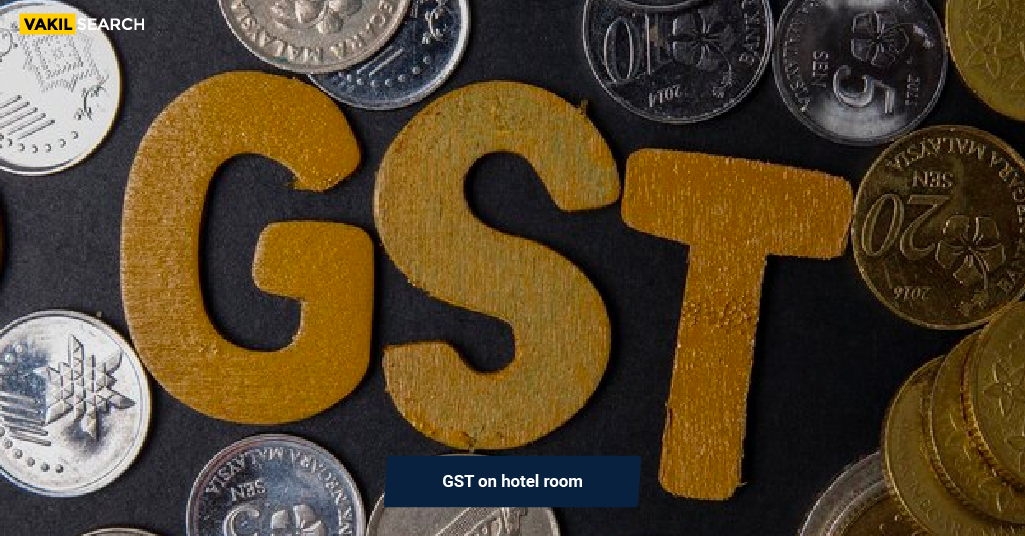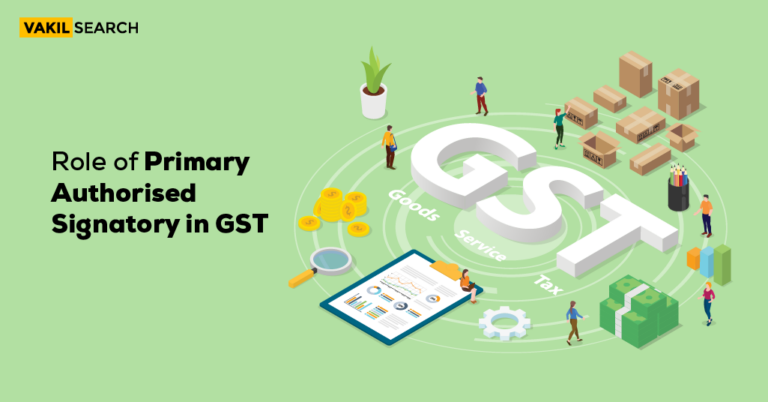Dive into the complexities of GST on hotel rooms and restaurants, unravelling the nuances of rates, exemptions, and SAC codes. Gain insights for strategic compliance and business growth.
GST on Hotel Rooms and Restaurants – Overview
When it comes to GST on hotel rooms, understanding the entities involved is crucial. The hotel industry, a significant player in the service sector, is subject to GST on its various offerings. Hotel room tariffs, the amount charged for accommodation, play a central role in determining the applicable GST rates. Online Travel Agencies (OTAs) that facilitate hotel bookings are also part of this ecosystem. In this article let’s dive into GST on Hotel Rooms & Restaurants in detail.
GST Rate for Hotels
The GST rates for hotel rooms vary based on factors such as room tariff and hotel classification. Let’s break down these rates to provide a clearer understanding:
Hotels Rooms with Tariff of Less than ₹ 2500 per Day
For hotels offering rooms with a tariff of less than ₹ 2500 per day, a concessional GST rate is applicable. This lower rate aims to support budget accommodations and make them more accessible to a broader segment of travellers.
Hotels Rooms with Tariff of Less than ₹ 5000 per Day
Similarly, hotels with room tariffs falling below ₹ 5000 per day enjoy a favorable GST registration rate. This tiered approach allows for flexibility in taxation, benefiting mid-range hotels and encouraging affordable accommodation options.
5 Star Hotels or Hotels Rooms with Tariff of More than ₹ 5000 per Day
5-star hotels or those charging more than ₹ 5000 per day fall under a higher GST rate category. This reflects the luxury nature of these accommodations and aligns with the progressive nature of GST.
GST Rates for Hotel Food
The GST rates for food services within hotels are distinct from those applied to room tariffs. The classification is based on whether the hotel serves alcohol and the availability of air-conditioning.
Restaurants with No Air-Conditioning and No License to Serve Liquor
Restaurants without air-conditioning and lacking a license to serve liquor are subject to a lower GST rate. This aims to support smaller establishments and encourages diversity in the hospitality sector.
Restaurants with Air-Conditioning
For restaurants equipped with air-conditioning, a slightly higher GST rate is applicable. The inclusion of air-conditioning implies an enhanced level of service and comfort, justifying the differential taxation.
Restaurants with License to Serve Liquor
Restaurants holding a license to serve liquor face a unique GST rate, considering the additional service provided. The sale of alcoholic beverages is subject to specific regulations, impacting the overall taxation structure.
5 Star Hotel Restaurants
5-star hotel restaurants, synonymous with luxury and high-end dining experiences, fall under a category with a higher GST rate. This aligns with the premium nature of the services offered by these establishments.
GST Rate for Marriage Hall, Banquet Hall, Conference Center, etc.
Beyond accommodation and dining, other venues like marriage halls, banquet halls, and conference centers are also subject to GST. The rates for these event spaces may vary based on factors such as capacity and facilities provided.
GST Rate for Outdoor Catering
For outdoor catering services, where food is prepared and served at a location other than the caterer’s premises, specific GST rates apply. Understanding these rates is crucial for businesses engaged in catering for events, functions, or gatherings.
SAC Code for Hotels and Restaurants
The Services Accounting Code (SAC) is a unique code that classifies services under GST. For hotels and restaurants, specific SAC codes help in accurate reporting and compliance with GST regulations. Businesses need to ensure that they use the correct SAC codes to avoid any discrepancies.
Benefits of GST on Hotel Rooms and Restaurants
Understanding the GST structure for hotels and restaurants unveils several benefits:
- Uniform Taxation: GST brings uniformity to the taxation structure, simplifying compliance for businesses in the hospitality sector.
- Tiered Approach: The tiered approach to GST rates caters to the diverse nature of accommodations, promoting inclusivity and affordability.
- Support for Budget Establishments: Concessional rates for budget accommodations ensure that economical options remain accessible to a broader audience.
- Encouraging Luxury Services: Higher GST rates for luxury accommodations and services incentivise the development and maintenance of premium facilities.
- Clarity in Taxation: The categorisation based on factors like air-conditioning and liquor licenses provides clarity in taxation, making it easier for businesses to comply.
Utilising GST for Business Growth
For businesses in the hospitality sector, leveraging GST goes beyond mere compliance. Here are some strategic tips for maximising the benefits offered by the GST framework:
- Accurate Classification: Ensure accurate classification of services and facilities to apply the correct GST rates and SAC codes.
- Transparent Billing: Clearly mention GST details on invoices and bills to maintain transparency and comply with regulatory requirements.
- Regular Updates: Stay informed about any changes or updates to GST rates and regulations to adapt promptly and ensure compliance.
- Technology Integration: Explore digital tools and technology to streamline GST-related processes, making compliance more efficient.
Conclusion
In conclusion, navigating the intricacies of GST on hotel rooms and restaurants is essential for businesses in the hospitality sector. Understanding the nuanced tax structure and classifications is not merely a compliance requirement but a strategic necessity for businesses aiming to thrive in this dynamic industry.
The hospitality sector’s diverse landscape, encompassing budget accommodations, mid-range hotels, luxurious 5-star establishments, and a wide array of restaurants, demands a tailored approach to GST. The tiered GST rates, based on factors such as room tariff, air-conditioning, and liquor licenses, reflect the government’s intention to create a fair and progressive taxation system.
GST on Hotels and Rooms FAQs
As of 2023, the GST slabs for hotel rooms vary based on the room tariff. The rates range from 0% for rooms with tariffs below ₹ 1,000 to higher slabs for luxury accommodations. It's crucial to understand the applicable slab to ensure accurate billing and compliance.
Hotel rooms with a tariff below ₹ 1,000 are exempt from GST, providing relief to budget travellers. This exemption aims to make affordable accommodations more accessible and aligns with the government's efforts to promote inclusivity in the hospitality sector.
Yes, hotels without Input Tax Credit (ITC) are still liable to pay GST. The availability of ITC might impact the overall tax liability, but it does not exempt hotels from fulfilling their GST obligations. Businesses should be aware of the specific GST regulations applicable to their operations.
The GST rate on restaurants varies based on factors such as air-conditioning and the availability of a liquor license. Restaurants without air-conditioning and those without a liquor license have different rates compared to air-conditioned ones. Understanding these distinctions is crucial for accurate taxation.
Yes, it is compulsory for restaurants to pay GST on their services. The GST rates depend on several factors, including the type of restaurant and its facilities. Compliance with GST regulations is mandatory, and restaurants must ensure accurate billing and timely remittance of the applicable GST.
Restaurants opting for the composition scheme under GST have a flat rate, simplifying tax compliance. As of 2023, the GST rate for restaurants in the composition scheme is 5%. This scheme is beneficial for small restaurants, reducing the complexity of tax calculations.
The GST rate for a composite supply depends on the components included in the supply. In a composite supply, where goods or services are bundled together, the GST rate is determined based on the principal component. Understanding the composition of the supply is crucial for accurate tax assessment and compliance. What is the GST slab for hotel rooms in 2023?
Do I have to pay GST if hotel rooms are below ₹ 1000?
Is there GST on hotels without ITC?
What is the GST rate on restaurants?
Is it compulsory to pay GST in restaurants?
What is the GST rate on restaurants in composition?
What is the GST rate for composite supply?










